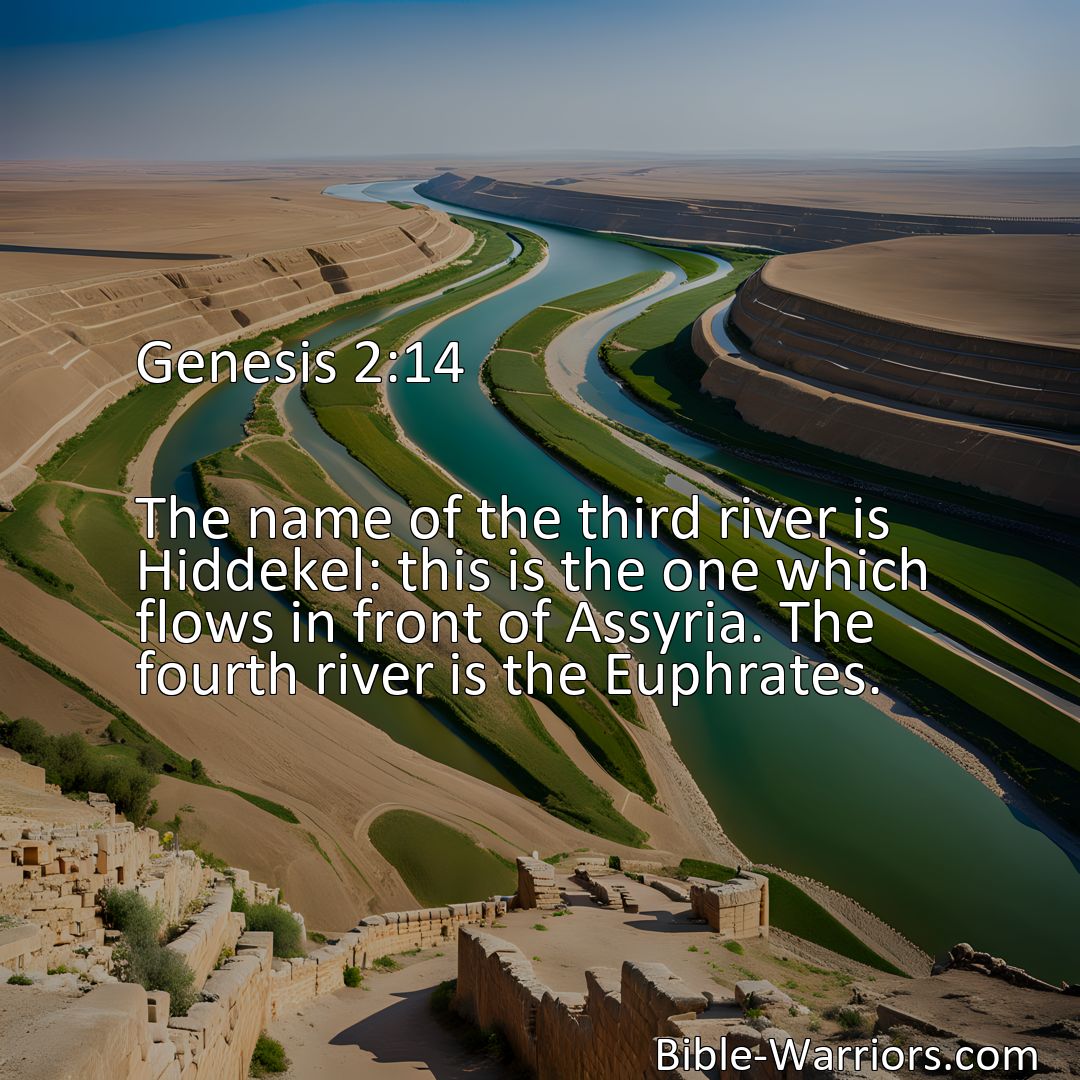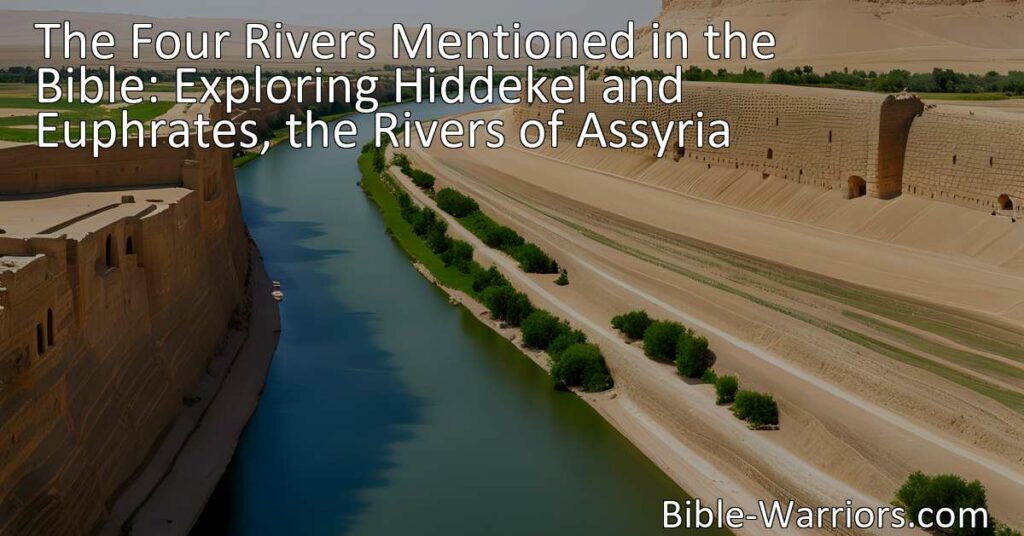Genesis 2:14 – The name of the third river is Hiddekel: this is the one which flows in front of Assyria. The fourth river is the Euphrates.
Explore the historical and spiritual significance of the Hiddekel and Euphrates rivers mentioned in the Bible. These ancient waterways played a crucial role in the development of civilizations and symbolize the connection between humanity and the divine. Discover the rich tapestry of biblical narratives and the profound messages they convey.
Table of Contents
In the Bible, there is mention of four significant rivers. Among them are the Hiddekel and the Euphrates, both flowing through the land of Assyria. Let’s dive into these ancient waterways and discover their historical significance and spiritual meaning.
The name Hiddekel may not sound familiar to many, but it refers to the well-known river Tigris. Its mention in the Bible gives us insight into the geography of the ancient Near East. The Tigris, or Hiddekel, was one of the two great rivers of Mesopotamia, along with the Euphrates. These rivers played a crucial role in the development of civilization in ancient times.
The Tigris River runs through modern-day Iraq, flowing southeastward from its source in the mountains of eastern Turkey. It eventually meets the Euphrates, creating a fertile region known as the “Fertile Crescent.” This area provided an ideal habitat for agriculture, leading to the rise of ancient civilizations such as Assyria and Babylon.
The mention of Hiddekel in the Bible brings us back to the story of Eden. In the book of Genesis, it is said that a river flowed out of Eden and divided into four streams. One of these streams was the Hiddekel, along with the Euphrates (Genesis 2:14). As we delve into the symbolic meaning of these rivers, we recognize how they represent the connection between humanity and nature.
The Euphrates River, which is the fourth river mentioned in the Bible, is one of the longest rivers in Western Asia and holds great historical significance. It flows through present-day Turkey, Syria, Iraq, and eventually joins the Tigris. The Euphrates served as the lifeblood for many ancient civilizations, and its fertile banks allowed flourishing agricultural practices.
The Euphrates holds a special place in biblical history. It is mentioned over 70 times in the Bible and plays a pivotal role in prophetic visions recorded in the book of Revelation. The prophet Ezekiel encountered a vision where he saw a restored Israel with water flowing from the temple and the river of life flowing towards the east, heading to the Dead Sea. This river is believed to symbolize the spiritual nourishment and eternal life given by God.
As we explore the historical and spiritual significance of these rivers, we cannot overlook their relevance in biblical narratives. The land surrounding the Tigris and Euphrates was home to powerful empires such as the Assyrians, Babylonians, and Persians. These empires left a lasting impact on the world, shaping not only the political and social development of the region but also its cultural and religious beliefs.
The rivers of Assyria, particularly the Tigris and Euphrates, became symbols of power and prosperity for these ancient civilizations. They nurtured agricultural lands, allowed for trade and transportation, and provided a means for defense. The rivers were essential for survival and were directly associated with the well-being of the people.
Moreover, the Bible uses the rivers as metaphors, conveying profound spiritual messages. They represent the cycles of life, the constant flow of time, and the dynamic relationship between humanity and God’s creation. The rivers, with their life-giving waters, symbolize the spiritual nourishment essential for the growth and sustenance of the soul.
In conclusion, the mention of the Hiddekel and Euphrates rivers in the Bible brings forth both historical and spiritual significance. These rivers played a vital role in the development of ancient civilizations and hold symbolic meanings representing the connection between humanity and the divine. As we explore these ancient waterways, we gain insight into the rich tapestry of biblical narratives and the profound messages they convey.
Freely Shareable Bible Verse Image Genesis 2:14
I hope this Bible verse image brings you hope and peace. Share it with someone who needs it today!



